10 thoughts from dramatic weekend of Premier League action
theScore examines the most important developments and discusses the biggest talking points from another thrilling weekend in England’s top flight.
Arteta has his players’ attention
There were some peculiar aspects to Mikel Arteta’s speeches in Amazon Prime’s “All or Nothing” documentary series on Arsenal, like when he paired his words with a drawing of a heart and brain holding hands and smiling ahead of the north London derby in September 2021. In that particular scenario, the players appeared confused rather than motivated, but the illustration may have unwittingly punctured the dressing-room tension as Arsenal went on to beat Tottenham Hotspur 3-1.
As time passes, Arteta’s team talks appear to be nothing but inspiring. He’s assembled a young, hungry squad eager to listen and execute his instructions, and the Spaniard is making himself understood.
Nottingham Forest threatened to pinch a goal before halftime of Sunday’s match at the Emirates Stadium. Gabriel Magalhaes gifted possession to Jesse Lingard inside the area, and Arsenal conceded an inviting free-kick. However, a key defensive block and a combination of Aaron Ramsdale and the offside flag kept Forest at bay. Arsenal, dominating until that period, needed to regroup.
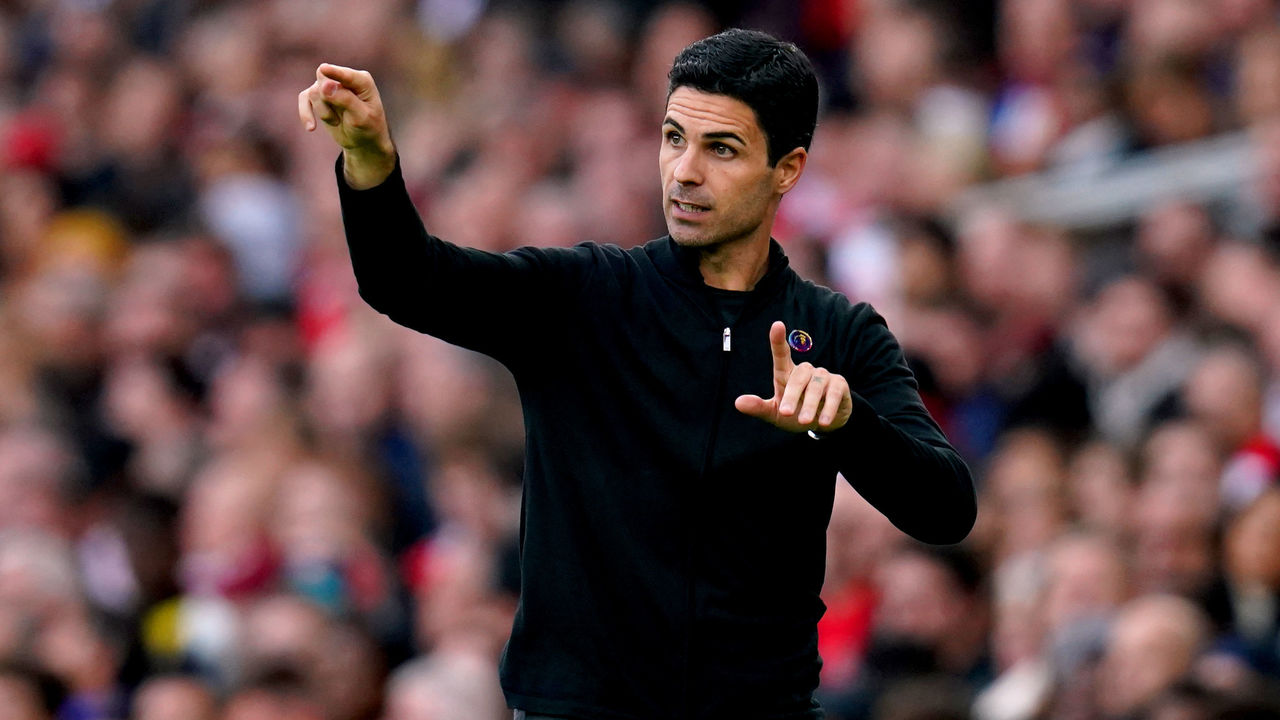
Fifteen minutes after the restart and it was game over. Arsenal exploded into the second half just as they did the first, quickly adding three goals through Reiss Nelson (twice) and Thomas Partey. The visitors were fortunate to lose only 5-0 when the final whistle sounded.
Perhaps we should’ve seen this coming. Arsenal now have the most goals – eight – in the opening 15 minutes of second halves this season. That’s a clear indication that Arteta’s players are absorbing his speeches – and cartoons. Nottingham Forest, on the other hand, have conceded a league-worst 10 goals in that quarter-hour spell.
The conditions were right at the Emirates Stadium for Arsenal to engineer another statement win. The betting odds and many pundits’ opinions may suggest the title belongs to Manchester City, but each passing week edges us closer to a two-horse race for the Premier League title between Pep Guardiola’s side and the young Gunners.
Milestone moment for Rashford
Just one day before his 25th birthday, Marcus Rashford scored his 100th goal for Manchester United, grabbing the lone tally in Sunday’s 1-0 win over West Ham United. The coincidental milestones make for a perfect opportunity to evaluate where the versatile forward stands at this point in his career.
The circumstances around Rashford’s rise were simultaneously beneficial and detrimental. The utter disarray at Manchester United, which the club finally appears to be growing out of, created an opportunity for the then-teenager that might not otherwise have existed. It also created unfair expectations that he’d be the singular savior, particularly as he made such an immediate impact upon graduating from the club’s academy. Expectations that he’d develop into a dominant scoring force exploded when, as an 18-year-old, he netted in his Europa League debut. Days later, he scored twice in a Premier League win over Arsenal.
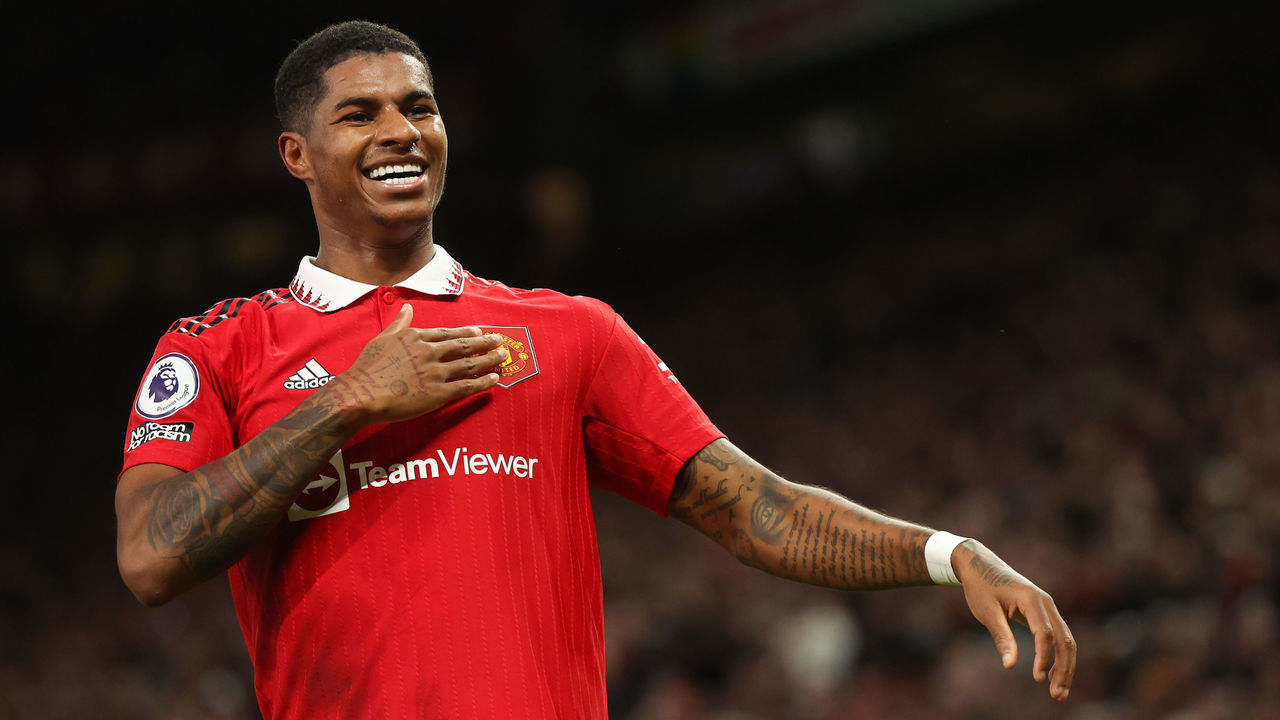
There was no stopping the hype train from there.
Predictably, there have been ups and downs, as with every player. Rashford has developed a knack for scoring clutch goals. He’s also struggled with injuries and barren spells, hampered in no small part by United’s lack of stability over the last few years. Rashford is the first to admit he’s at his best when playing on the left, where he can run behind defenders and find space in the channels. But he’s bounced around positions throughout his career, often viewed as a stopgap No. 9 option by various managers when the Red Devils needed to plug a hole up front.
With Erik ten Hag building a sustainable long-term project and a rejuvenated Rashford enjoying his role in that scheme, the Englishman is free to develop on a more linear path without the weight of the world on his shoulders. That’s the way it should have been all along.
What happened to Tomas Soucek?
Tomas Soucek was one of the most dangerous midfielders in the Premier League over his first 18 months at West Ham. The angular Czech hinted at his goal-scoring threat during the second half of the 2019-20 campaign with three strikes. He then notched 10 goals – only three of which were headers – over the following season.
What changed?
Soucek fired an attempt on goal every 53 minutes during his first year-and-a-half in England. Since August 2021, his shots have dipped to one every 70.5 minutes. He’s also attempting more tackles in the middle third or defensive third, tackling 3.38 times per 90 minutes this term. His rate was 2.07 between his transfer in January 2020 and last summer.
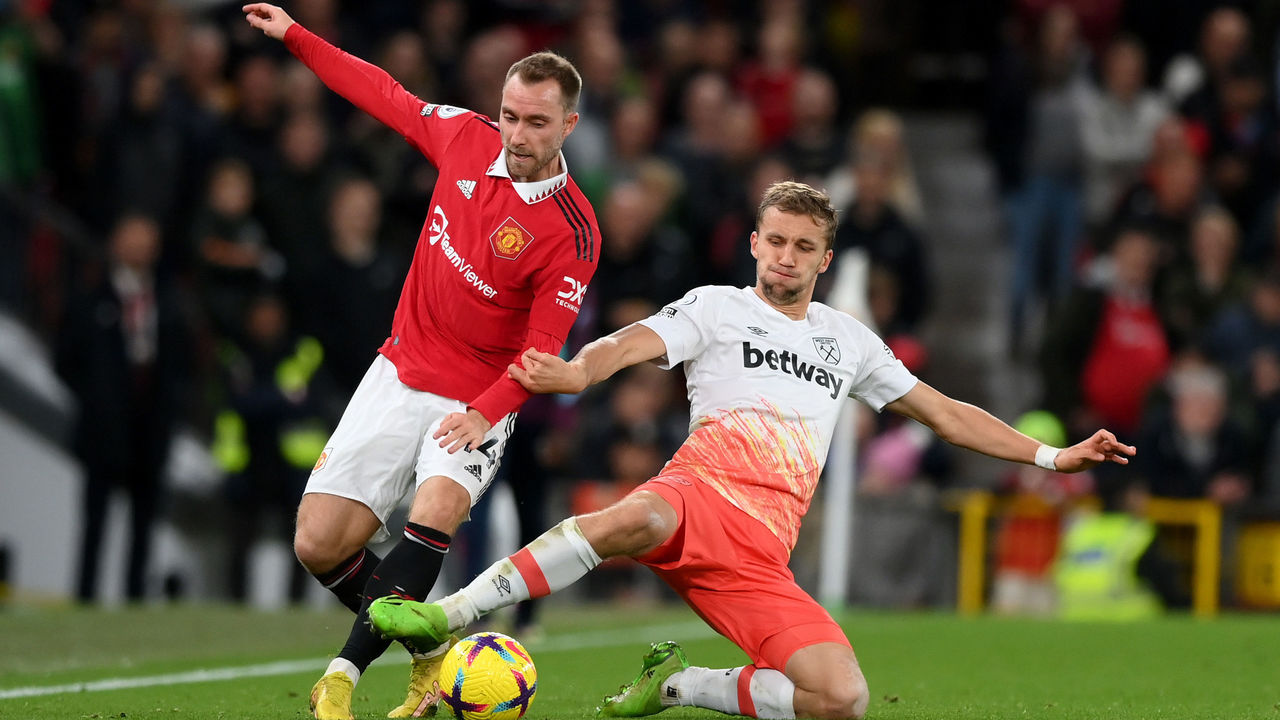
A few elements could’ve contributed to Soucek’s drop in attacking productivity and increase in defensive responsibility. For one, Mark Noble’s appearances decreased before he retired at the end of last season. That heightened the need for a defensive presence in midfield, and the onus was primarily on Soucek to cover for Noble. Declan Rice is developing into a physical and skilled – and, of course, hugely talented – all-round midfielder, and David Moyes wasn’t going to interfere with the academy product’s progression.
Additionally, there’s been a steady influx of attack-minded players since Soucek’s arrival, including this season’s signings of Gianluca Scamacca, Flynn Downes, Maxwel Cornet, and Lucas Paqueta. Jarrod Bowen’s influence has also grown massively over that period.
Soucek has simply been stripped of some of his more adventurous duties through the recruitment and growth of natural attackers in the squad. However, the question must be asked: Is Soucek’s changed role detrimental to West Ham’s output?
Only the Premier League’s bottom two – Wolverhampton Wanderers and Nottingham Forest – have scored fewer goals than West Ham this season. Rather than swapping Scamacca for Michail Antonio when searching for goals, Moyes might sometimes be better off trying something different and pushing Soucek into more dangerous areas.
Here are the main talking points from Saturday’s matches …
Learning to play without Haaland
Much of the talk surrounding Erling Haaland and Manchester City heading into this season centered on the idea of adaptation. Most assumed, rather fairly, that it would take time for player and club to acclimate and get the very best out of one another. Not quite, in hindsight.
If anything, Saturday’s slim 1-0 win over Leicester City showed that Pep Guardiola’s team is already so accustomed to the Norwegian being the focal point of the attack that it needs to relearn how to play without him. Malleability has always been a trait of Guardiola’s sides, so it was interesting to see City look largely blunt at the King Power Stadium, where Julian Alvarez started in place of Haaland, who was out with an ankle injury.
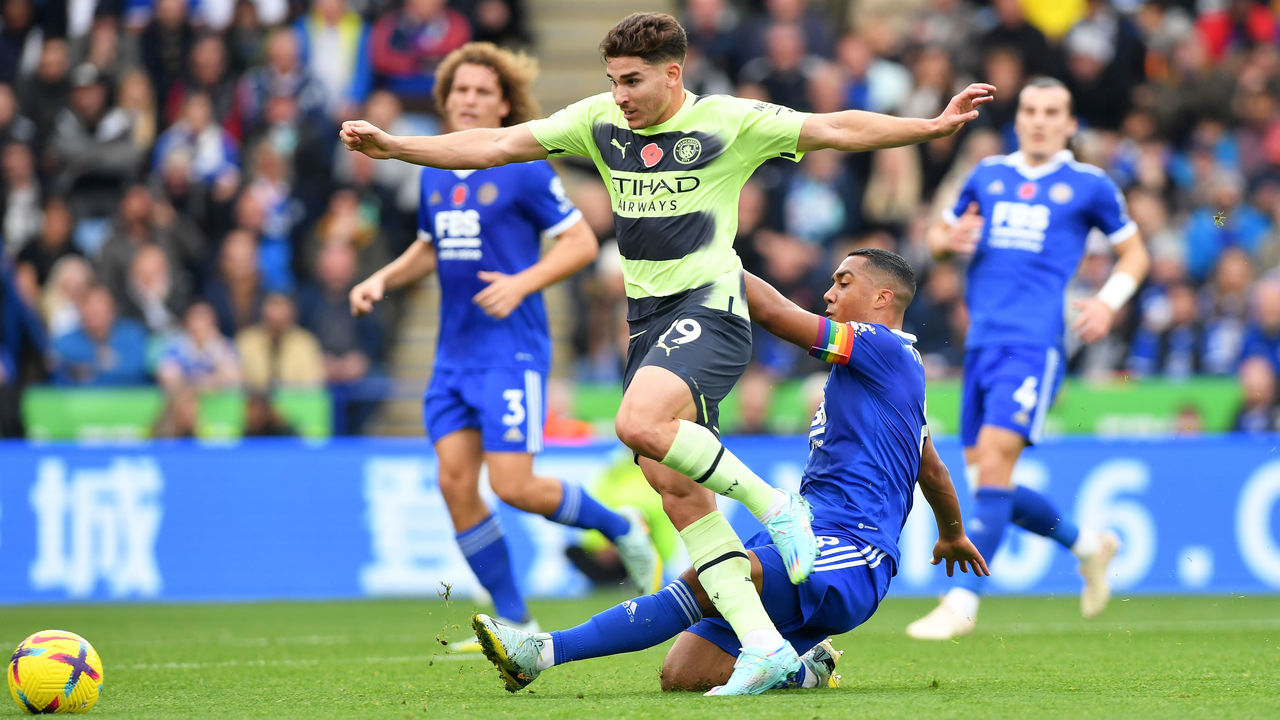
Using a nontraditional No. 9 is something City did to great effect, of course, before Haaland’s arrival. Saturday, though, the young Argentine struggled to make an impact before being replaced by Phil Foden. Despite Manchester City dominating the ball and making a season-high 181 first-half passes in the final third, Alvarez had just seven touches in the opening stanza. One of those was the kickoff and only two were inside the penalty area. For his many exciting skills, Alvarez isn’t a Haaland clone. Far from it. His presence in the lineup requires a different stylistic approach.
City, obviously, have learned how to maximize Haaland’s skills. Now they need to brush up on what to do without him.
Tottenham lack defensive depth
Tottenham Hotspur deserve plenty of credit for the resilience they showed in Saturday’s comeback win over Bournemouth, battling until the very end to turn a 2-0 deficit into an uplifting 3-2 win. But the final score shouldn’t distract from the problems that continue to plague the team.
Last week, we highlighted a lack of attacking ingenuity and incisiveness as one of the key reasons for Spurs’ recent slump; the injury-enforced absences of Richarlison and Dejan Kulusevski continue to loom large. This time around, an alarming lack of defensive depth came to the fore.
With Cristian Romero out and the overworked Eric Dier in need of a breather, Antonio Conte opted for a back-three of Ben Davies, Clement Lenglet, and Davinson Sanchez.
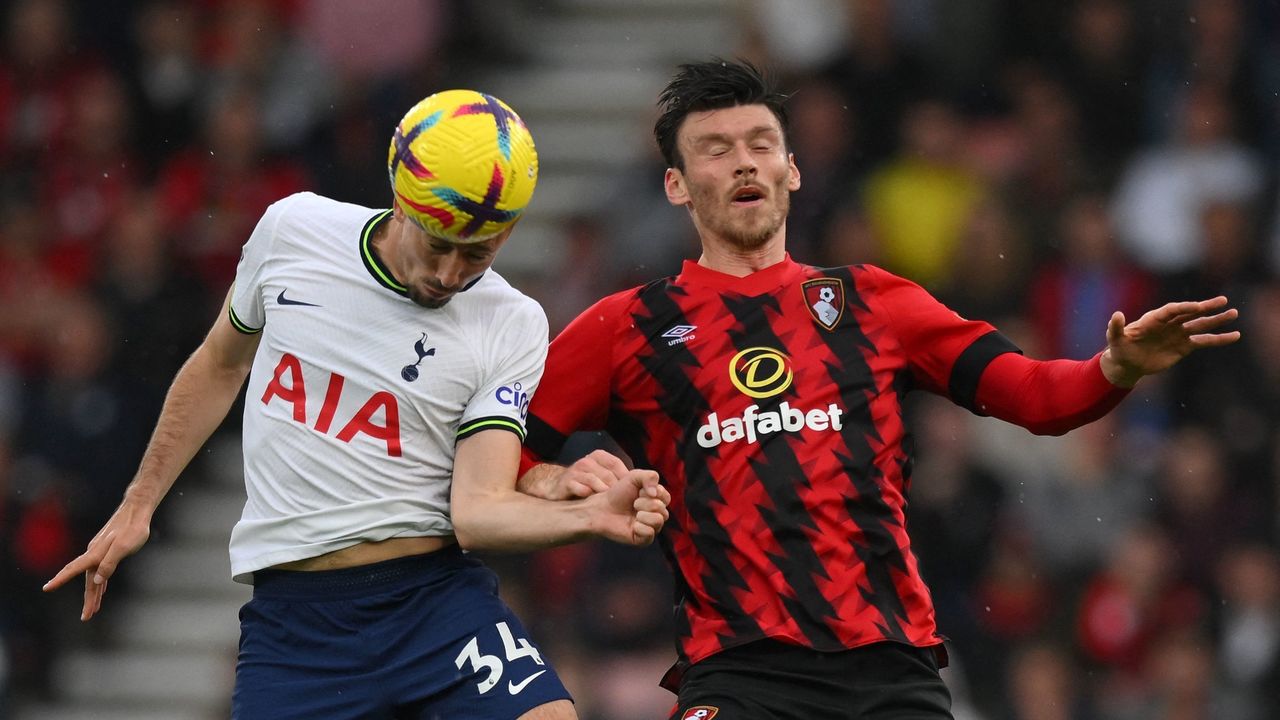
The trio conspired to make Kieffer Moore look like prime Pele. Moore is a fine footballer, but he isn’t exactly a prolific scorer. He was consistently menacing against Tottenham, though, scoring both goals for the Cherries. He came into the match with one goal all season. Conte, seemingly admitting his selected trio wasn’t up to the task, swapped Sanchez for Dier before the hour mark. Tottenham looked infinitely better after that change.
Missing your best central defender is difficult to overcome for any team. Romero, with his combination of aggression and athleticism, is absolutely vital to holding Tottenham’s backline together. But Spurs’ inability to cope with these absences is hugely concerning, especially during a season when the workload on players is enormous and rotation is more important than ever before. Tottenham could be busy in January.
Horror return for Potter
Graham Potter’s name was belted out around Amex Stadium once again. But it wasn’t the songs of embrace that he had come to expect over the years with Brighton and Hove Albion. Instead, there was a clear negative tone to the songs fans sang to their former manager upon his return to the south coast with Chelsea.
And with every Brighton goal in Saturday’s 4-1 victory, the anti-Potter chants grew louder.
Facing the Seagulls for the first time since joining Chelsea, Potter was left stunned after just five minutes when the hosts took the lead in front of a record crowd at the Amex. After Brighton doubled their advantage minutes later, fans belted out chants of, “You’re getting sacked in the morning.”
Brighton have beaten Chelsea in a league meeting for the first time in the club’s history.
Graham Potter and the Return to the Amex. ?? pic.twitter.com/76eYQ4IF5V
— Squawka (@Squawka) October 29, 2022
It was a message from a frustrated fan base that was left reeling after Potter left for an opportunity that he said earlier this week was “too good to turn down.”
Potter tried desperately to stop the bleeding, switching formations and abandoning his back-three in favor of four defenders. Kai Havertz promptly scored after halftime, but it ultimately wasn’t enough to prevent Potter from tasting defeat for the first time since joining Chelsea.
The Blues’ sterile attack was once again a major issue, as they failed to convert multiple chances that could’ve had a significant impact on Saturday’s contest.
De Zerbi’s 1st win was a long time coming
Before Saturday’s awakening at Amex Stadium, Roberto De Zerbi encountered the same problems his predecessor couldn’t quite solve. Brighton outshot and outplayed their opponents in four of De Zerbi’s first five matches as manager but walked away without victory from each one. Brighton just couldn’t convert the many, many chances they were creating.
Their fortune turned against Chelsea. Sensing space in midfield, De Zerbi ordered his charges to attack the Blues from the start, and their relentless pursuit of the ball paid instant dividends, allowing them to head into halftime with a 3-0 advantage. Chelsea’s two own goals certainly helped, but they were far from acts of charity. The hosts put the ball into such dangerous situations that goals of any kind seemed likely. Chelsea captain Thiago Silva made two goal-line clearances in the first five minutes alone.
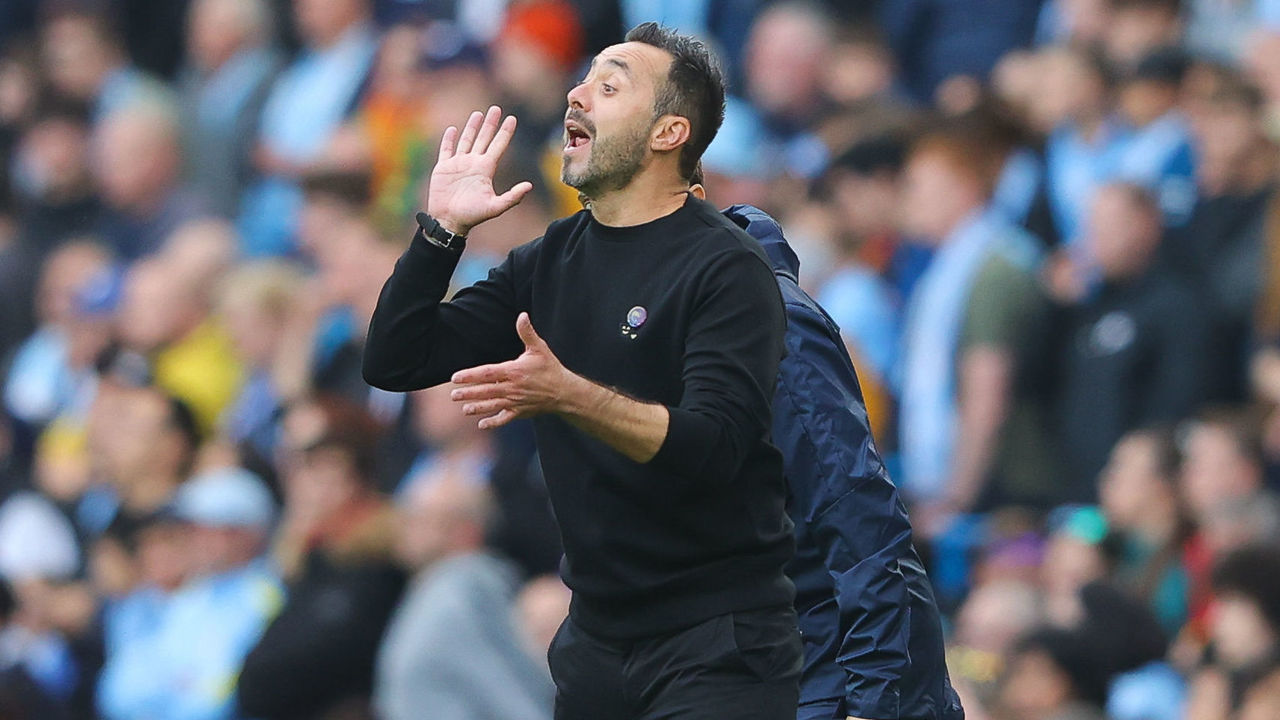
De Zerbi is now reaping the rewards of a system he has tweaked but largely sourced from Potter’s two-and-a-half seasons on the south coast. Brighton have always played some of their best and most enterprising football against the Premier League’s big six teams, and Saturday was no different. The Italian showed the same tactical flexibility that Potter had shown on previous occasions, switching from a 3-4-2-1 to a more compact 4-2-3-1 that enabled Brighton to dominate the midfield.
The fans must’ve taken particular delight in Pervis Estupinan’s performance on the left flank. Signed as Marc Cucurella’s replacement, the Ecuadorian full-back owned that side of the pitch. Despite taking every opportunity to bomb forward, Estupinan still managed to maintain his defensive shape.
There’s more to come from De Zerbi’s side. This win will be the first of many.
Collector’s item for Costa
Diego Costa was shown the first red card of his Premier League career on Saturday. We know. We’re surprised, too.
More than maybe any other player in recent memory, Costa is the biggest benefactor from the lack of video technology during his previous stint in England with Chelsea. He wasn’t so lucky this time, though, as a headbutt on Ben Mee was flagged, and punished, by VAR in stoppage time of Wolves’ 1-1 draw with Brentford.
Costa, brought in on a free transfer in September to help address Wolves’ scoring problems, now has more red cards than goals this season. It was only a matter of time.
Wilson deserves ticket to Qatar
The only thing missing from Callum Wilson’s match-winning performance Saturday against Aston Villa was a third goal. His third career Premier League hat trick nearly arrived when he fired a late shot off the crossbar. But the near-miss mattered little in the end. Newcastle United’s 4-0 win reinforced their top-four credentials, and Wilson boosted his chances of making England’s World Cup squad with two goals and an assist.
Among the revelers at St. James’ Park was Three Lions boss Gareth Southgate, who was undoubtedly happy to see another striker within his purview at the top of his game. In truth, Wilson, an unassuming striker with just four international caps to his name, had already played his way into England’s consciousness. Southgate wouldn’t have made the trek to the northeast if he wasn’t interested in Wilson or English teammates Kieran Trippier and Dan Burn.
The center-forward has an unbelievable tendency to step up when it matters most. Wilson scored the opener in last weekend’s win over Tottenham, struck the go-ahead goal in Newcastle’s 3-3 draw with Manchester City earlier in the season, and put in his best performance of the campaign with a call-up on the line.
Statistically, the 30-year-old has outperformed his contemporaries in two of the most significant scoring categories. Though he’s not the most prolific of poachers or the most blessed with playing time, he’s clinical. In a fast-paced tournament setting, that’s key.
| Minutes per goal | Conversion rate | |
|---|---|---|
| Callum Wilson | 152 | 23% |
| Harry Kane | 163 | 15% |
| Ivan Toney | 204 | 16% |
| Tammy Abraham | 204 | 15% |
| Dominic Calvert-Lewin | 261 | 16% |
| Marcus Rashford | 299 | 15% |
It’s now up to Southgate to reward a player who has done all he can to prove himself.
Liverpool are their own worst enemy
Liverpool’s loss to Leeds United on Saturday followed the same playbook as recent contests. They conceded first for the eighth time in 12 Premier League matches and, after finally springing to life, ran into a red-hot goalkeeper. Crucially, they walked away from another fixture without anything to show for the fight they put up.
Liverpool didn’t play badly. In fact, they haven’t played that poorly in the Premier League this season. As they did in last weekend’s 1-0 loss to Nottingham Forest, Jurgen Klopp’s side bordered on 70% possession against Leeds, creating more than enough chances to produce more than one goal. Leeds ‘keeper Illan Meslier made nine saves, including several of the spectacular variety, in a match-saving performance that mimicked Dean Henderson’s majestic display at City Ground.
The issue for Liverpool is simply mental. While they’re creating a lot of chances, they’re conceding too many of their own. Mix in an inordinate number of individual errors, and it’s a recipe for disaster.
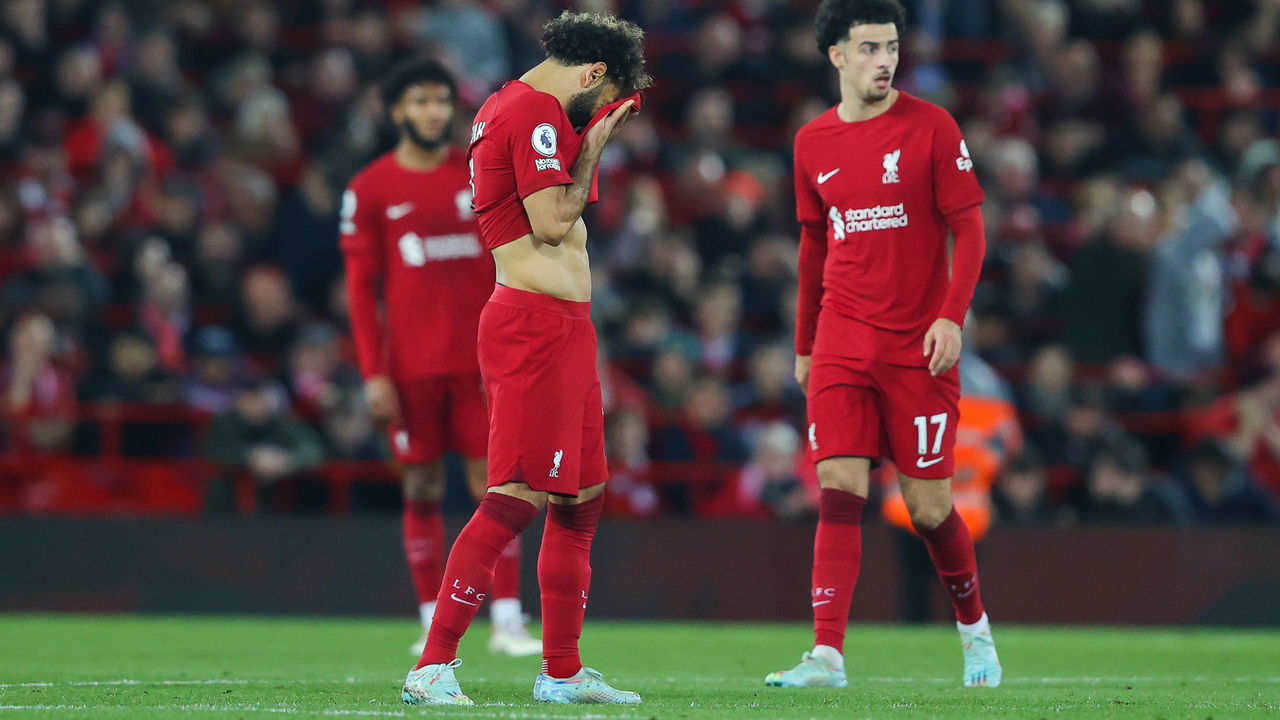
They made a tough game even harder for themselves. Joe Gomez’s misplaced pass gifted Leeds an early opener, and James Milner’s giveaway led to Crysencio Summerville’s winning goal in the 89th minute. With better defending, Liverpool could’ve recovered from Milner’s sloppy pass into no man’s land. Three defenders surrounded Summerville as he angled for a shot in the penalty area. Somehow, he eluded all three and arrowed his shot into the bottom corner.
That’s not to say Klopp’s outfit isn’t still capable. No team in the Premier League averages more than Liverpool’s 17.7 shots per game. They rank second to Manchester City in shots on target and possession while conceding the third-fewest shots per game. But as long as they struggle to manage games – to score first and early, limit errors, and capitalize on massive spells of possession – they’ll continue to lose matches. Liverpool’s biggest problem used to be their biggest strength: to make every touch and pass count.



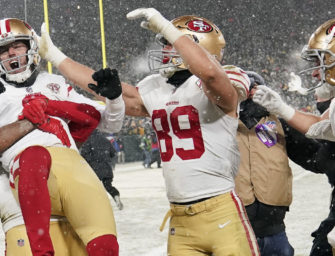
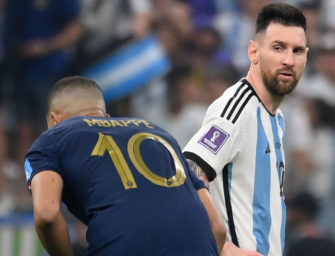
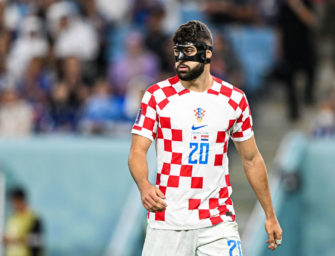
Latest Comments